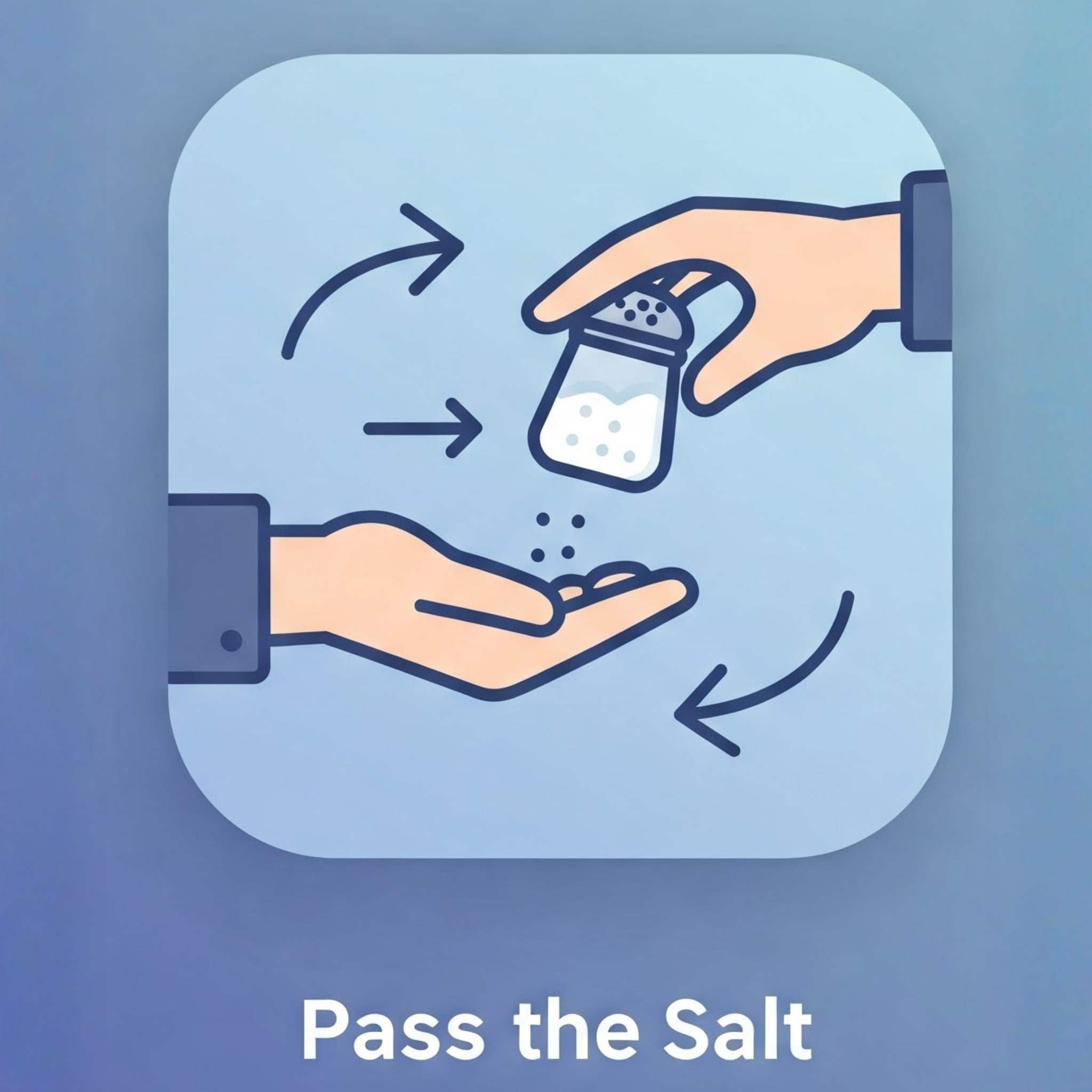Pass
Definition
Pass is a verb and a noun. As a verb, it means to move past something, to succeed in an examination, or to transfer something to another person. As a noun, it refers to an act of passing, a ticket for entry or transit, or a mountain route.
Parts of Speech
- Verb
- Noun
Pronunciation
American English
- IPA Pronunciation: /pæs/, /pɑːs/
- Respelling: pas, pahs
British English
- IPA Pronunciation: /pɑːs/
- Respelling: pahs
Etymology
The word "pass" originates from the Old French "passer," meaning "to pass through," derived from Latin "passare," which is based on "passus," meaning "step." It entered Middle English in the 14th century.
Derivatives
- Passage (noun)
- Passer (noun)
- Passing (adjective/noun)
- Overpass (noun/verb)
- Bypass (noun/verb)
Synonyms
- Advance
- Transmit
- Permit
Antonyms
- Fail
- Halt
- Stop
Usage
The term "pass" is versatile and widely used in contexts like movement, success, or permission. For example, "She managed to pass her driving test," or "They hiked through the mountain pass."
Related Terms
- Permit: A document granting permission.
- Transfer: To move something from one place to another.
- Route: A path or course to follow.
Detailed Definitions
Verb
- To move past or beyond something:
- Example: "The train passes through the station at noon."
- To succeed in an examination or test:
- Example: "He passed his math test with flying colors."
- To hand or transfer something to another person:
- Example: "Please pass the salt."
- To go unnoticed or without objection:
- Example: "The mistake passed without being noticed."
Noun
- An act of passing or moving through:
- Example: "The runner made a quick pass around the track."
- A ticket or document for permission or entry:
- Example: "You need a parking pass to enter the lot."
- A route through a mountain or difficult terrain:
- Example: "The explorers crossed the treacherous mountain pass."
pass



🇨🇳 Mandarin
- 通过 (tōngguò) - used in the sense of passing through something
- IPA: /tʰʊŋ55.kwo51/
- Respelling: tong-guo
- 传递 (chuándì) - used in the sense of passing on something
- IPA: /ʈʂhʊan214-51.ti214-51/
- Respelling: chuan-di
🇮🇳 Hindi
- पास (paas) - used in the sense of passing an examination
- IPA: /paːs/
- Respelling: paas
- गुजरना (guzarna) - used in the sense of passing through
- IPA: /gʊd͡zəɾnaː/
- Respelling: gu-zar-na
🇪🇸 Spanish
- Pasar - used in the sense of passing through or by
- IPA: /paˈsaɾ/
- Respelling: pa-sar
- Aprobar - used in the sense of passing an examination
- IPA: /apɾoˈβaɾ/
- Respelling: a-pro-bar
🇫🇷 French
- Passer - used in the sense of passing through or by
- IPA: /pɑˈse/
- Respelling: pa-se
- Réussir - used in the sense of passing an examination
- IPA: /ʁe.yˈsiʁ/
- Respelling: re-yu-sir
🇸🇦 Arabic (Modern Standard)
- يمر (yamur) - used in the sense of passing through or by
- IPA: /jaˈmur/
- Respelling: ya-mur
- ينجح (yanjah) - used in the sense of passing an examination
- IPA: /janˈd͡ʒah/
- Respelling: yan-jah
🇧🇩 Bengali
- পাস (paas) - used in the sense of passing an examination
- IPA: /paːs/
- Respelling: paas
- পার হয়ে যাওয়া (par hoye jawa) - used in the sense of passing through or by
- IPA: /par hɔe d͡ʒaʊwa/
- Respelling: par hoye ja-wa
🇷🇺 Russian
- Пройти (proyti) - used in the sense of passing through or by
- IPA: /prɐjˈtʲi/
- Respelling: proy-ti
- Сдать (sdat') - used in the sense of passing an examination
- IPA: /sdatʲ/
- Respelling: sda-t
🇵🇹 Portuguese
- Passar - used in the sense of passing through or by
- IPA: /pɐˈsaɾ/
- Respelling: pa-sar
- Aprovar - used in the sense of passing an examination
- IPA: /apɾoˈvaɾ/
- Respelling: a-pro-var
🇮🇩 Indonesian
- Lewati - used in the sense of passing through or by
- IPA: /ləwati/
- Respelling: le-wa-ti
- Lulus - used in the sense of passing an examination
- IPA: /lulus/
- Respelling: lu-lus
🇩🇪 German
- Durchgehen - used in the sense of passing through or by
- IPA: /ˈdʊʁcˌɡeːən/
- Respelling: durch-gehen
- Bestehen - used in the sense of passing an examination
- IPA: /bəˈʃteːən/
- Respelling: be-stehen
🇯🇵 Japanese
- 通過する (tsuuka suru) - used in the sense of passing through or by
- IPA: /t͡sɨᵝːka sɨᵝɾɯᵝ/
- Respelling: tsu-ka su-ru
- 合格する (goukaku suru) - used in the sense of passing an examination
- IPA: /ɡoːkakɯᵝ sɨᵝɾɯᵝ/
- Respelling: go-ka-ku su-ru
🇻🇳 Vietnamese
- Đi qua - used in the sense of passing through or by
- IPA: /ɗi˨˩ kwa˧ˀ˨ʔ/
- Respelling: di qua
- Đậu - used in the sense of passing an examination
- IPA: /ɗaːw˨˩/
- Respelling: dau
🇰🇷 Korean
- 지나가다 (jinagada) - used in the sense of passing through or by
- IPA: /t͡ɕinaɡada/
- Respelling: ji-na-ga-da
- 통과하다 (tonggwahada) - used in the sense of passing an examination
- IPA: /tʰoŋ.gwa.ha.da/
- Respelling: tong-gwa-ha-da
🇹🇷 Turkish
- Geçmek - used in the sense of passing through or by
- IPA: /ɟetʃˈmek/
- Respelling: gech-mek
- Başarmak - used in the sense of passing an examination
- IPA: /baʃˈaɾmak/
- Respelling: ba-shar-mak
🇵🇰 Urdu
- گزرنا (guzarna) - used in the sense of passing through or by
- IPA: /gʊzəɾna/
- Respelling: gu-zar-na
- پاس کرنا (paas karna) - used in the sense of passing an examination
- IPA: /paːs kəɾna/
- Respelling: paas kar-na





